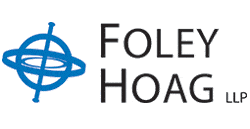On October 25, 2021, as more employers adopt workplace vaccination requirements for their employees, the U.S. Equal Employment Opportunity Commission (“EEOC”) updated its guidance concerning requiring COVID-19 vaccinations in the workplace. Most significantly, the EEOC offered guidance on employers’ Title VII obligation to accommodate employees with religious objections to receiving the COVID-19 vaccine.
The new guidance makes clear that, to be eligible for an accommodation under Title VII, employees must notify their employers that they intend to seek a religious accommodation due to a conflict with their sincerely held religious beliefs. While there are no “magic words” an employee must use, an employee still must notify the employer that the employee has a religious conflict with the employer’s vaccination requirement. Notably, objections to COVID-19 vaccinations that are based on social, political, or personal preferences, or on nonreligious concerns about the possible effects of the vaccine, do not qualify as “religious beliefs” under Title VII.
However, merely notifying an employer of a conflict with a religiously held belief does not compel an employer to grant the employee an exception to a vaccine requirement. While ordinarily employers should assume a belief is sincerely held, if the employer has “an objective basis for questioning” the employee, the employer may make a “limited factual inquiry” into the issue. Factors that can be considered when determining the credibility of an employee claiming a religious accommodation exemption are: (1) whether the employee has acted in a manner inconsistent with the professed belief (although employees need not be scrupulous in their observance); (2) whether the accommodation sought is a particularly desirable benefit that is likely to be sought for nonreligious reasons; (3) whether the timing of the request renders it suspect (e.g., it follows an earlier request by the employee for the same benefit for secular reasons); and (4) whether the employer otherwise has reason to believe the accommodation is not sought for religious reasons.
Even if a religious belief is sincerely held, an employer does not need to provide an employee with an accommodation that would present an “undue hardship” for the employer. The EEOC outlined a few factors to consider when determining if providing a reasonable accommodation for a sincerely held religious belief would be an “undue hardship.” These include whether the employee requesting a religious accommodation to a COVID-19 vaccination requirement works outdoors or indoors, works in a solitary or group work setting, or has close contact with other employees or members of the public (especially medically vulnerable individuals). Another relevant consideration is the number of employees who are seeking a similar accommodation (i.e., the cumulative cost or burden on the employer). While cumulative burden can be considered as a factor for undue hardship, an employer need not grant an exemption to every employee, merely because it granted the exemption to one employee. Each circumstance should be evaluated individually.
The EEOC guidance clarifies that an employer does not need to provide an employee the accommodation the employee prefers; it may instead provide another accommodation that is effective in eliminating the religious conflict and does not cause an undue hardship under Title VII. For instance, an employer may decide that an employee is entitled to a religious exemption to its vaccine rules because of the employee’s sincerely held religious belief or practice, but the employer does not need to permit the employee to have continued access to the workplace without restriction, posing a health and safety risk to its other employees. Instead, it may condition the exemption on the employee complying with other safety measures (such as masking, social distancing and/or submitting to regular COVID-19 testing), reassigning the employee, or requiring the employee to work from home, among other things. Further, an employer is not locked into providing the reasonable accommodation indefinitely. If at a later point in time the employer decides that continuing to grant the religious accommodation would create an undue hardship, then an employer may revoke the accommodation.
Navigating religious exemption requests in the workplace can be complicated, but it is important to remember that employers have a fair amount of discretion in granting these requests. While employers should always engage in good faith discussions on how to best accommodate their employees’ needs, the EEOC guidance makes clear that it need not come at the expense of the health and safety of other employees in the workplace.
___
This post was originally published on the Foley Hoag blog.




